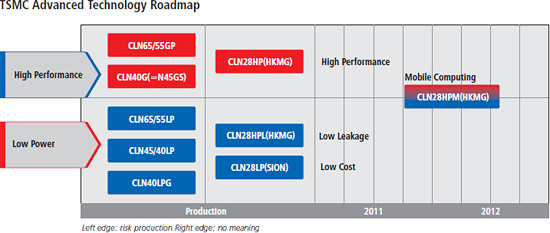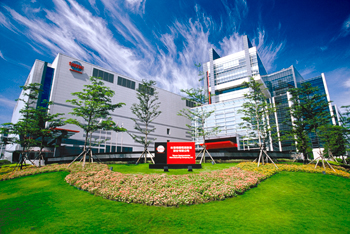TSMC intends to get the next-next node 20nm out as fast as possible. In a cooperation with ARM it has already made great progress. TSMC hopes to have the new process up and running available for commercial applications by the end of next year.
TSMC has together with ARM made the first Cortex-A15 processor at 20nm, which will be TSMC’s test subject for the new node. ARM that is behind the design is working with TSMC to calibrate the new node for its designs. ARM points out that the new manufacturing technologies are not just tricky to develop, but also designing circuits is becoming more challening due to the increased current leakage. Therefore circuits will be specifically designed for 20nm, and regions beyond, in the future.
TSMC expected the new 20nm technology will bring up to 25 percent lower energy consumption, 15 – 20 percent higher performance and near two-fold (1.9x) transistors density over 28nm. The plan for TSMC is to bring out the new node earlier than expected, and have it ready for production by the end of the next year. TSMC will not be implementing any new technologies to battle the increased current leakage, e.g. Intel will introduced the Tri-Gate transistor at 22nm.
 20nm could be completed a year after starting mass production at 28nm
20nm could be completed a year after starting mass production at 28nm
At 14nm both TSMC and GlobalFoundries will be introducing new technologies for this. ARM says to consider SOI, as an alternative to FinFET (Tri-Gate), but has not decided. While ARM is not doing any foundry work its words weigh heavily for foundries like TSMC, GlobalFoundries and Samsung, so it is possible that SOI will be found at at least one partner in the future. According to reasearch from AMD, GlobalFoundries, ST, Soitec and Siltronic FinFET and SOI will be equal at 20nm – this may change at 14nm though.
If TSMC gets 20nm ready for production in Q4 2012 as hoped, it means mass production can start shortly afterwards. An increase in tempo compared to the last two years. it could be because the demand for the very latest is stronger than ever, but also the competition from Samsung and GlobalFoundries. It is clear though that no foundry will implement SOI or some kind of ”3D-transistor” like FinFET first at 14nm.
Source: ElectronicsWeekly





















Leave a Reply